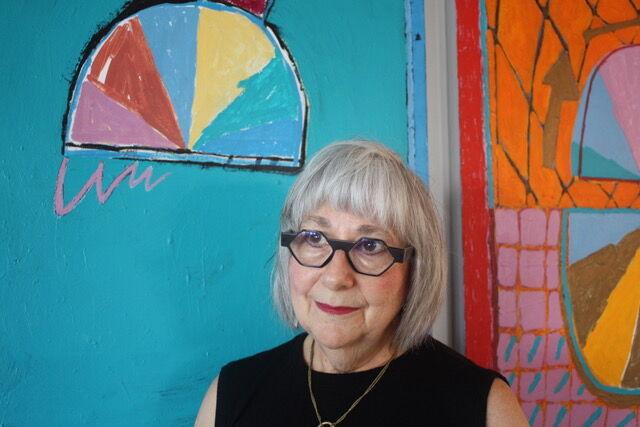Saturday, Jan. 27 was Holocaust Remembrance Day, commemorating the liberation of the Nazi concentration and extermination camp Auschwitz-Birkenau. Vigils, conversations and somber remembrances mark the day. On Thursday, in honor of the occasion, Yerra Sugarman, a teacher and a poet, shared excerpts from her new poetry collection, “Aunt Bird.”
“Aunt Bird” remembers Sugarman’s aunt, who the Nazis killed in a ghetto in Krakow, Poland at the age of 23. Yerra used historical documents, first-hand accounts, a journey that brought her to the former ghetto and fantastical metaphors to remember her Aunt Feiga.
“[I wrote] to create this memorial for my aunt,” Sugarman said. “I have no idea where her body is buried or if it’s buried. In that way, I built out of words, or I tried to, a resting place for her.”
The resting place features lyric poems, prose poems and lyric essays. It serves as a striking recreation of the ghost in Sugarman’s life: the aunt she never had the opportunity to meet.
Sugarman has received degrees from Columbia University, Concordia University, the City College of New York and the University of Houston. Now, she passes on her knowledge in private lessons and guest lectures.
The poetry reading, put on by the Department of Interdisciplinary Studies and the Department of History, featured Sugarman in conversation with Julie Mell, a professor of medieval history at NC State. They took questions from students and others in attendance, diving deep on questions of trauma, Judaism, identity and the creative process.
Judy Kertesz, a former assistant professor at NC State, was in attendance at the reading.
“I think the work that she does is meaningful in that it transforms it from just a, ‘This happened in this factual manner,’ and transforms it into something where anyone can derive meaning from that work, from that poetry, the ability to bring different ideas and words in new ways to not only evoke, but kind of make tangible, a horrific experience,” Kertesz said.
During her stay, Sugarman gave a guest lecture to a Jewish history class, where she talked about turning history into poetry.
“The talk was really about turning history into poetry and the idea of trauma, genocide and memory, and I gave them an exercise to do during class,” Sugarman said. “People who’ve experienced not just individual traumas but also collective traumas, like slavery, like the Holocaust and so many others, the Armenian Genocide, so many horrible things and the gift we get listening to them later on, and they give us this opportunity to try to better ourselves, basically.”
Sugarman discussed the ways in which the Holocaust has implications on the Israeli psyche and the current Israel-Hamas war.
“I think, right away, that trauma is rekindled,” Sugarman said. “Certainly it’s rekindled for me, as a child of Holocaust survivors, and I know it was rekindled in a lot of … Israelis. I’m someone who grew up among Holocaust survivors.”
The event reflected the power of words to translate hard experiences into something that can be related to everyone and the importance of doing so.
“What I saw [in] students yesterday in North Carolina State was this incredible ability to speak very delicately, very complex, nuanced terms,” Sugarman said. “The way the mind is able to move, the movement of the mind through that complexity, living and, of course, discourse or discussions. … It’s happening constantly.”














